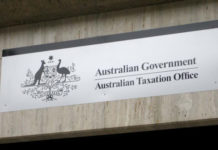
Traveling to Australia with a Working Holiday Visa (WHV) can be an exciting adventure, but it’s important to be prepared for any medical needs that may arise during your stay. Understanding how to access medical treatment in Australia is crucial for ensuring your health and well-being. This guide will help you navigate the Australian healthcare system, from finding a doctor to understanding insurance coverage.
Table of Contents
Understanding the Healthcare system in Australia
Australia has a robust healthcare system that includes public and private services. Medicare is the public healthcare system providing free or subsidized treatment to Australian citizens and permanent residents. However, as a traveler on a WHV, you may not be eligible for Medicare unless your country has a reciprocal healthcare agreement with Australia.
Countries with Reciprocal Healthcare agreements
If you are from one of the following countries, you may be eligible for some Medicare benefits:
- United Kingdom
- New Zealand
- Ireland
- Sweden
- The Netherlands
- Finland
- Belgium
- Norway
- Slovenia
- Malta
- Italy
Eligibility under these agreements typically covers essential medical treatment that can’t wait until you return home. It’s important to confirm your eligibility and understand the extent of coverage before relying on Medicare.
What is covered under Medicare?
- Consultations with a general practitioner or a specialist (partially covered)
- Treatment in a public hospital
- Surgery
- Subsidised medicine under the pharmaceutical Benefits Scheme (PBS)
Treatments such as dental expenses, alternative medication, physiotherapy, ambulance services, glasses or contact lenses, treatments in private hospitals are not covered under Medicare.
How to apply for Medicare
To sign up, visit a Medicare centre or call 132011. You will have to complete a Medicare form and provide supporting documents. You can find more information on the government’s website here.
We recommend you to take out additional insurance even if you benefit from Medicare. All those who don’t qualify for Medicare will have to take out private health insurance to cover their health expenses.
Read more: Medicare: Australian Healthcare System
Getting health insurance
Even if you are eligible for some Medicare benefits, it’s highly recommended to have comprehensive health insurance to cover additional medical expenses. There are several options for obtaining health insurance as a WHV holder:
Travel Insurance can provide coverage for medical emergencies, accidents, and sometimes dental care. Make sure your policy covers you for the entire duration of your stay in Australia.
Overseas Visitors Health Cover is designed specifically for visitors to Australia, including those on working holiday visas. These policies can cover a range of medical services, including hospital stays, doctor visits, and prescriptions.
Popular Insurance Providers:
- World Nomads: Known for its extensive coverage, including adventure activities.
- SafetyWing: Offers flexible, subscription-based coverage for long-term travelers.
- Go Walkabout: Provides tailored insurance for working holidaymakers.
Read also : Travel Insurance Australia
Finding a doctor or medical facility in Australia
Whether it’s for a check-up or a more serious issue, it’s not uncommon to have to go to a general practitioner, even abroad. So that this relatively common experience is not an ordeal for you, here is a simple explanation.
Getting treated in Australia by general practitioners/pharmacists/walk in clinic
In Australia, the most accessible doctors are General Practitioners, commonly referred to as GPs. GPs are usually the first point of contact for non-emergency medical issues. You can find GPs in medical centers, clinics, and private practices. Some medical centers “bulk bill” , which means they bill Medicare directly, resulting in no out-of-pocket expense for eligible patients.
For those who do not have Medicare, it will cost you between 70 and 90 AUD for a quick consultation (10 to 15 min). Beyond 15 min, the price of the consultation increases ($120 on average).
It is advisable to make an appointment before going to the doctor. In general, practices are open Monday to Friday (9am to 5pm) and sometimes also Saturday mornings.
Walk-In Clinics are also an option to see a medical practitioner. They are convenient for minor ailments and are often open after hours. They do not require an appointment and can provide quick treatment for non-emergency issues.
Pharmacists can provide advice and treatment for minor ailments, and many pharmacies have a consulting room where you can discuss your symptoms privately.
What is the quality of medical care in Australia?
The quality of care in Australia is generally satisfactory: it has a good reputation. Nevertheless, it seems that general practitioners don’t tend to prescribe medicine as much as in other countries. You could come out of a consultation with a very light prescription, or even without a prescription. Indeed, Australian doctors often favour (depending on the case) lifestyle advice, rather than medical prescriptions. For example, in the event of a severe cold, they will advise you stay hydrated, rest and take Panadol rather than prescribing antibiotics.
Get treated in Australia by specialist doctors
Before going to a specialist (except for ophthalmologists and dentists), you must first go through a general practitioner. They will provide you with a referral letter which you will then have to present to the specialist. This will allow you to be reimbursed by Medicare or your health insurance.
What are the prices for treatment in Australia by a specialist?
For your first session you can expect to spend about an hour, which will cost you 150 to 250 AUD. Any follow-up sessions will generally be shorter and therefore a little less expensive.

Going to hospitals in Australia
Throughout Australia, hospitals must adhere to the latest quality standards and are open to all. The quality of care and the facilities are very good. You will find two types of hospitals: public establishments and private establishments.
Public hospitals offer emergency treatment and are available to anyone in need of urgent care. In case of an emergency, dial 000 for ambulance, fire, or police services. Ambulance services are not free in all states and territories, so having insurance that covers ambulance costs is crucial.
Note that translation services are offered in many hospitals. If English is not your first language, do not hesitate to ask for these if you have communication difficulties!
Getting treatment in Australia in public hospitals
In Australia, you will find public hospitals in all cities. If you are covered in one of them, you will be able to use your Medicare coverage. If you cannot claim it, you can of course count on your travel/health insurance.
Getting treated in Australia in private hospitals
Private hospitals provide a higher level of comfort and shorter waiting times but may be more expensive. They are totally independent of Medicare. It is therefore impossible to get your treatment reimbursed through this service. Most of them, nevertheless, have agreements with travel insurance providers. If you have travel insurance, it’s worth investigating further, because the wait times can be shorter when you go private.
Medical costs and payment
It is difficult to provide exact prices, because they vary according to many different parameters: location, needs, public or private facilities, etc.
To get an idea, know that a simple blood test costs around $100, and a night in the hospital in a single room can amount to $1200! Ambulance fares can also be very high: a patient transported from his home to the nearest hospital, located 50 km away, had to pay $1200! The need for private insurance is clearer than ever in this case.
Please note that in the event of hospitalisation, you must contact your insurance company as soon as possible to find out what steps to take.
Finding a hospital in Australia
It is relatively easy to find a hospital on the coasts for treatment in Australia. However, when you move away from the big cities, in the outback for example, they become rarer. So remember to be equipped with a first aid kit and some medicines while waiting for help!
💡 Good to know: You will find hospitals near you on the Hospitalby website.
Organising repatriation from Australia
If your health requires repatriation from Australia to your home country, be aware that the distance between the two countries can quickly rack up huge costs. In the event of a serious accident, you may need to be moved to a medical centre. Depending on where you are and how serious the prognosis is, a helicopter or a plane may need be chartered.
Fortunately, most travel insurance covers this eventuality: there is no need to tell you that it is absolutely necessary to have it!
Note that for certain visa categories, such as the Working Holiday Visa, Australia imposes this coverage for long stays.
Getting medical treatment in Australia in case of emergency
In the case of an emergency, make the smart decision! No matter where you are in Australia, you can call the same number for emergency services: 000.
This is the Australian emergency and rescue number, reachable from any telephone or telephone booth.
Pregnancy in Australia
During a Working Holiday Visa stay or living in Australia as an expat, pregnancies can happen. So that this happy event does not turn into a financial nightmare, it is important to inform yourself beforehand if possible. Indeed, if getting treatment in Australia is generally expensive, you can imagine that monitoring a pregnancy and childbirth are too.

If you have Medicare, then you will be able to benefit from financial support if you opt for a public hospital.
If you are not covered by Medicare, you need to be very vigilant. The care required around a pregnancy and childbirth generates exorbitant fees, between ultrasounds, blood tests, and regular visits to the doctor. Depending on the area and hospital, the costs incurred by a pregnancy can vary from 9,000 to 30,000 AUD. In order to minimise costs, it’s necessary, first of all, to have a good health insurance plan (check the waiting times for care). Carefully read the conditions of your contract, and contact the doctors and hospitals covered by your insurer.
Read more: Pregnancy in Australia
Keeping healthy while traveling
Ensure you are up-to-date with routine vaccinations before traveling. Depending on where you have traveled previously or plan to travel within Australia, additional vaccinations might be recommended.
Regular health check-ups can help prevent illness and catch any health issues early. Schedule these with a GP, especially if you have ongoing medical conditions.
Traveling and living abroad can sometimes be challenging. Australia has numerous resources for mental health support, including hotlines, counseling services, and community groups.
Finally, be aware of environmental hazards like extreme heat, dangerous wildlife, and strong ocean currents. Take appropriate precautions and know the emergency procedures.



























